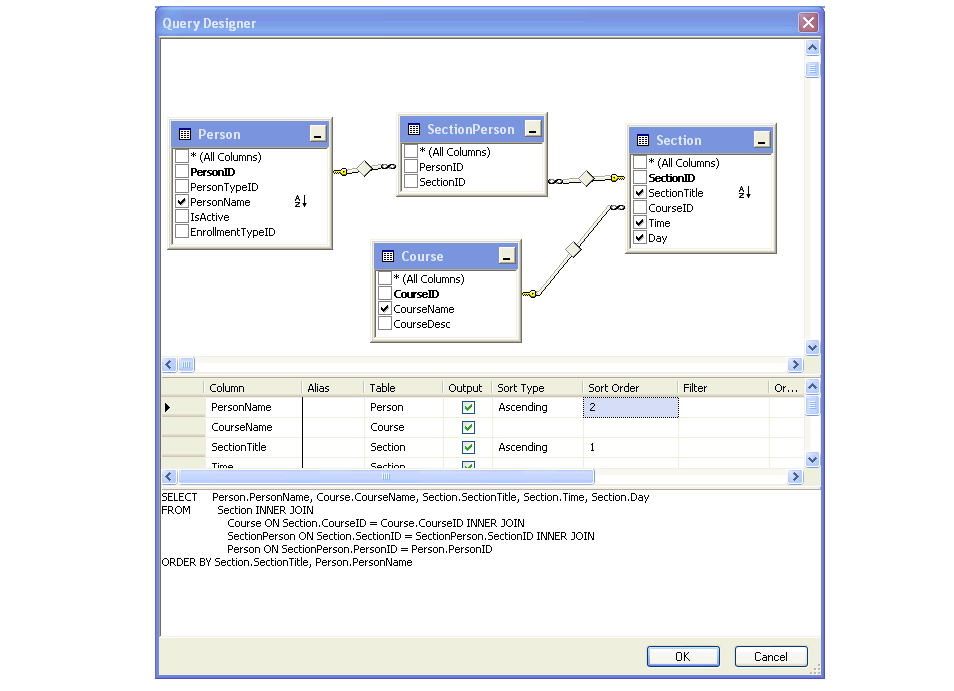As databases become increasingly central to modern applications, the ability to interact with them seamlessly becomes paramount. Enter SQL editors – specialized tools designed to bridge the gap between intricate database systems and human users.
Software developers and database managers rely on them to ensure efficiency, accuracy, and streamlined workflows. They are the unsung heroes that empower developers, data analysts, and database administrators to communicate with databases effortlessly.
The intuitive interfaces of these editors simplify complex SQL commands, enabling a wider range of users to query, manage, and optimize databases. From crafting intricate queries to managing database structures, they offer a diverse set of features that cater to varying expertise levels.
Quick List of 5 SQL Editors
Now, let’s take a look at our top SQL editors.
1. Oracle SQL Developer: A top choice for Oracle database management, providing an intuitive interface and robust features for efficient SQL development and administration.
2. SQLGate: A versatile SQL editor catering to various databases, with its visual query builder and collaboration tools making it an excellent option for diverse SQL tasks.
3. DbVisualizer: Ideal for managing and querying multiple databases, offering a unified interface and powerful tools for database design, optimization, and analysis.
4. Microsoft SQL Server Management Studio: Tailored for SQL Server databases, this tool excels in comprehensive management, query building, performance tuning, and more.
5. ADMINER: A lightweight and user-friendly database management tool suitable for various databases, known for its simplicity and quick installation for everyday tasks.
Comparison Table of SQL Editors
Since we’re talking about the best sql editor, below is a table that’ll help you.
Tools | Supported Databases | Integration | Technical Knowledge Needed | Visual Query Builder | Performance Tuning Tools | Data Visualization |
 | Oracle | Oracle databases | Basic SQL concepts | Limited | Limited | Limited |
 | Multiple, including MySQL, PostgreSQL, Oracle, SQL Server, and more | Various databases | Varies by user level | Available | Available | Limited |
 | Multiple, including MySQL, PostgreSQL, Oracle, SQL Server, and more | Various databases | Varies by user level | Available | Available | Available |
 | SQL Server | SQL Server databases | Basic SQL concepts | Available | Available | Limited |
 | Multiple, including MySQL, PostgreSQL, SQLite, and more | Various databases | Basic SQL concepts | Limited | Limited | Limited |
What are SQL Editors?
SQL editors are specialized software tools designed to simplify and enhance the interaction between users and relational databases using Structured Query Language (SQL). Data managers, developers, analysts, and administrators use them to manage, query, and manipulate data in relational database systems.
Streamlining SQL Querying
SQL editors provide a streamlined platform for writing and executing SQL queries. They offer features like syntax highlighting, code completion, and error checking to assist users in crafting accurate SQL statements.
These tools alleviate the need to remember intricate SQL syntax and ensure queries are correctly structured.
Database Management Made Easy
These editors also encompass a suite of database management features. Users can effortlessly create, modify, and delete database objects, such as tables, views, and indexes.
Data manipulation tasks like inserting, updating, and deleting records are also facilitated, making routine database maintenance more efficient.
Visual Query Builders
Many editors for SQL online include visual query builders, allowing users to construct queries using a graphical interface. This feature is particularly valuable for those who may not be proficient in writing complex SQL statements manually.
Performance Optimization
Advanced SQL editors offer performance optimization tools. They allow users to analyze query execution plans, identify performance bottlenecks, and receive recommendations for query optimization.
These features contribute to efficient database performance and responsiveness.
Data Visualization
Some editors even provide data visualization capabilities, enabling users to create insightful charts, graphs, and reports based on query results. This aids in understanding data trends and patterns, enhancing data-driven decision-making.
Tailored to Database Systems
Different editors cater to various database systems. Some support a broad range of databases, while others are optimized for specific platforms. This diversity allows users to choose an editor that aligns with their preferred database environment.
Accessibility and Complexity
Editors for SQL come in varying levels of complexity, accommodating both beginners and experienced database professionals. This flexibility ensures that users with different skill levels can effectively utilize the tools.
How SQL Editors Can Help Your Software Development or Testing
Editor tool for SQL plays a pivotal role in enhancing software development and testing processes by offering specialized tools for efficient database interaction and query management.
These tools provide a range of benefits that contribute to streamlined workflows and improved software quality.
Efficient Query Development
SQL editors provide an intuitive interface for crafting SQL queries. Developers and testers can write, modify, and test queries without the need to remember complex syntax, leading to quicker and more accurate query development.
Database Design and Management
With features for creating and modifying database objects, they assist in designing and managing the underlying database structure. This ensures that the software interacts seamlessly with the database, promoting data integrity and reliability.
Test Data Generation
During testing, SQL editors aid in generating test data by allowing users to populate tables with sample records. This is crucial for testing different scenarios and ensuring that the software behaves as expected under various conditions.
Data Validation and Testing
They facilitate data validation by enabling users to run queries against the database and compare expected versus actual results. This is essential for verifying that the software accurately interacts with the database and produces correct outcomes.
Performance Optimization
Developers and testers can use such editors to analyze query execution plans and identify performance bottlenecks. By fine-tuning queries and optimizing database interactions, software performance can be significantly improved.
Integration Testing
They help in integration testing by allowing users to validate the interactions between software components and the database. This ensures that data flows seamlessly between different parts of the application.
Collaboration and Documentation
Editors often support features for sharing queries, results, and analysis with team members. This promotes collaboration, enables knowledge sharing, and facilitates documentation of database interactions.
Cross-Platform Compatibility
Certain editors support multiple database systems, enabling developers and testers to work with various databases regardless of the underlying technology stack.
Data Security
They offer tools for managing database access privileges and security settings. This is crucial for ensuring that sensitive data remains protected during development and testing.
Why are SQL Editors Important to Your Software Testing?
They play a crucial role in ensuring the effectiveness and reliability of software testing processes by providing specialized tools for managing and interacting with databases. Incorporating a SQL editor into your testing workflow offers several key benefits that contribute to comprehensive and successful software testing.
Efficient Test Data Management
Editors for SQL enable testers to create, modify, and manage test data within databases. This capability ensures that the software is thoroughly tested with relevant and diverse datasets, covering a wide range of scenarios.
Accurate Data Validation
During testing, they empower testers to validate data integrity and accuracy by executing queries that compare expected outcomes with actual results. This verification process helps identify inconsistencies and potential defects early in the testing phase.
Comprehensive Data Testing
With these editors, testers can perform comprehensive data testing by querying the database to ensure that data is correctly retrieved, updated, and deleted as intended by the software functionalities.
Scenario Testing
They facilitate scenario testing by allowing testers to manipulate test data and execute queries to emulate various real-world scenarios. This helps uncover edge cases and ensures the software performs reliably across different situations.
Integration Testing
Integration testing involves validating interactions between software components and databases. A SQL editor enables testers to verify that data flows seamlessly between the software and the database, identifying any integration issues that may arise.
Performance and Scalability Testing
By analyzing query execution plans and optimizing database interactions, they contribute to performance and scalability testing. Testers can identify performance bottlenecks and optimize queries to ensure the software can handle large datasets and user loads.
Data Security Testing
They assist in data security testing by enabling testers to assess access controls, privileges, and encryption settings within databases. This ensures that sensitive data remains protected and compliant with security standards.
Collaboration and Documentation
Editors that support SQL often support collaboration features, allowing testers to share queries, results, and findings with the development team. This promotes clear communication and ensures that issues are addressed promptly.
Early Defect Detection
Through accurate data validation and comprehensive testing capabilities, a SQL editor can aid in detecting defects early in the testing process. This minimizes the cost and effort required for fixing issues later in the software development lifecycle.
Best SQL Editors
So, without any further ado let’s get deep into all the editors for SQL —
1. Oracle SQL Developer
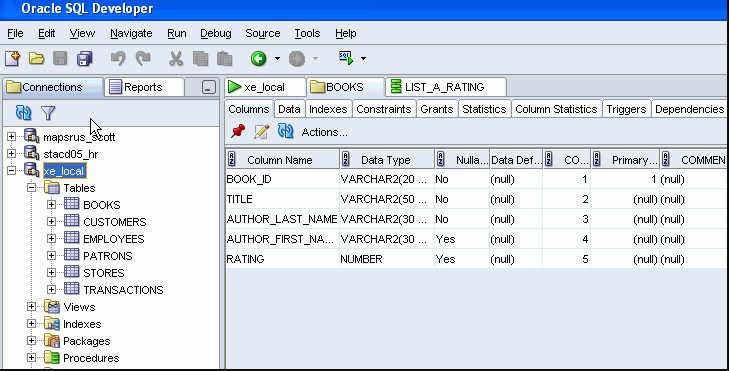
Oracle SQL Developer is a powerful tool that simplifies the process of managing and developing Oracle databases. Whether you’re a seasoned database professional or just starting out, this tool offers a user-friendly interface to work with SQL and database tasks.
It’s designed to streamline workflows, boost productivity, and enhance collaboration within your development team.
About Product:
- Founding: Oracle Corporation
- Employees: Specific number not available; Oracle had over 130,000 employees globally (as of 2021).
Key Features:
Query Editor and Execution
Effortlessly compose, refine, and execute SQL queries in a user-friendly interface. Receive instant feedback on results and enjoy the convenience of syntax highlighting for error-free coding.
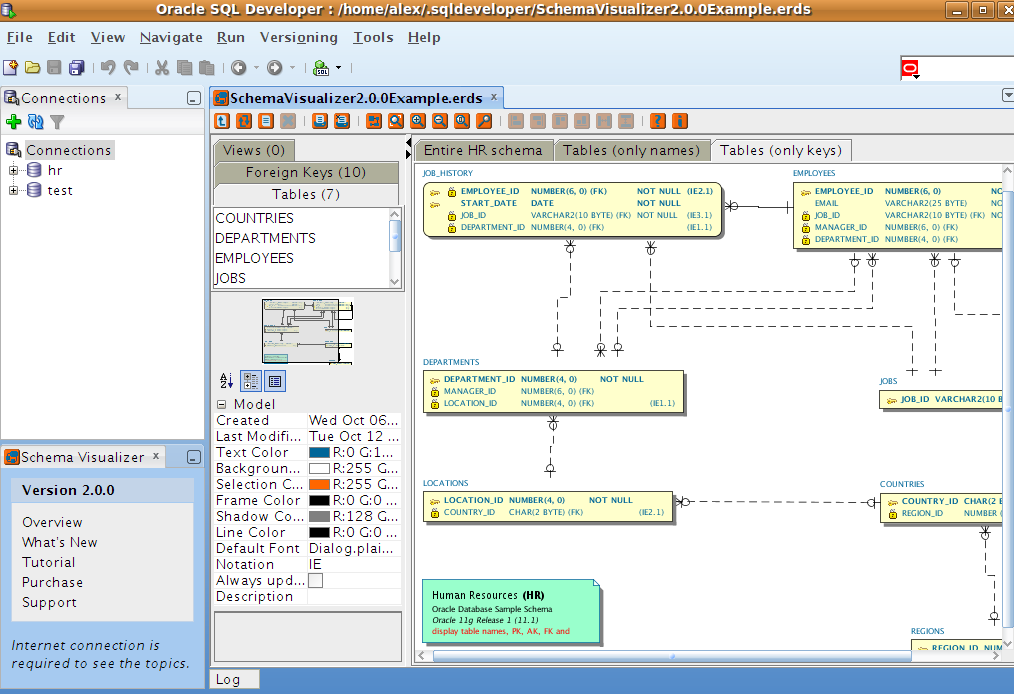
Schema Visualization
Navigate complex database structures more effectively with visual representations of schemas. This feature enhances understanding and streamlines database exploration.
Data Modeling
Efficiently create, modify, and manage database structures using the intuitive Data Modeler tool. Designing databases becomes more straightforward and collaborative.
PL/SQL Development
Simplify the process of writing, debugging, and testing PL/SQL code using the integrated tools. This feature enhances productivity and quality in PL/SQL development.
Version Control
Seamlessly integrate with version control systems, enabling teams to collaborate efficiently and manage database code effectively, ensuring consistency and traceability.

Reports and Dashboards
Transform data insights into actionable information by generating custom reports and interactive dashboards. Visualize trends and patterns for informed decision-making.
Database Administration
Streamline essential administrative tasks such as user management, backups, and performance optimization. This feature simplifies database maintenance and enhances system reliability.
Extensions and Plugins
Tailor the platform to suit specific needs by leveraging an extensive range of available extensions and plugins. Customize functionality and enhance the overall user experience.
Pros of Using Oracle SQL Developer:
- User-Friendly Interface
- Comprehensive Feature Set
- Integration with Oracle Databases
- Simplified PL/SQL Development
- Data Visualization Tools
Cons of Using Oracle SQL Developer:
- Primarily Suited for Oracle Databases
- Learning Curve for Complex Features
- Limited Advanced Analytics Capabilities
Pricing
- It’s freely available
Customer Ratings:
- 4.3 based on 869 reviews
Our Review of Oracle SQL Developer:
Oracle SQL Developer is a reliable companion for Oracle database professionals. Its intuitive interface minimizes the learning curve, allowing users to focus on efficiently managing databases and writing SQL queries. PL/SQL development tools and seamless integration with Oracle databases ensure a smooth workflow.
In spite of its focus on Oracle databases, the tool remains a top choice for those seeking an accessible and feature-rich SQL editor. Users across platforms continue to praise Oracle SQL Developer’s ability to manage and develop databases.
2. Microsoft SQL Server Management Studio

Microsoft SQL Server Management Studio (SSMS) is a robust and widely-used tool designed for managing Microsoft SQL Server databases. SSMS simplifies database tasks, optimizes performance, and simplifies data manipulation for database administrators, developers, and analysts.
Its integration with SQL Server databases and user-friendly interface make it an indispensable tool for SQL professionals.
About Microsoft SQL Server Management Studio:
- Founding: Microsoft
- Employees: Specific number not available; Microsoft had over 150,000 employees globally (as of 2021).
Key Features:
Query Editor
Effortlessly compose and execute SQL queries with advanced features like syntax highlighting, IntelliSense for auto-completion, and real-time result visualization, streamlining the database interaction process.

Database Diagrams
Create clear and intuitive graphical representations of database structures, aiding in the visualization and understanding of complex relationships within the data.
Server Administration
Efficiently manage server instances, ensuring security configurations, performing essential backup and restore operations, and maintaining the overall health of the database environment.
Data Import and Export
Seamlessly transfer data between databases using user-friendly wizards and interfaces, simplifying the process of data migration and integration.

Performance Tuning
Enhance database efficiency by identifying and optimizing poorly performing queries through integrated performance monitoring tools, leading to improved overall system responsiveness.
Stored Procedure Debugging
Facilitate the development and maintenance of T-SQL code by debugging and testing stored procedures and functions directly within the platform.

Integration Services
Develop, deploy, and manage ETL processes efficiently, enabling the smooth extraction, transformation, and loading of data across various sources and destinations.
Analysis Services
Design and deploy multidimensional models for OLAP, empowering users to perform in-depth data analysis and gain valuable insights into their datasets.
Pros of Using Microsoft SQL Server Management Studio:
- Seamless Integration with SQL Server
- Comprehensive Server and Database Management
- Powerful Performance Tuning Tools
- Robust Query Editing and Debugging
- Wide Range of Database Development Features
Cons of Using Microsoft SQL Server Management Studio:
- Limited Compatibility with Non-SQL Server Databases
- Learning Curve for Advanced Features
- Some Features Require Proficiency in SQL Server Technologies
Pricing
- Free version
- A range of $209 to $13,000
Customer Ratings:
- G2: 4.4 based on 2,155 reviews
Our Review of Microsoft SQL Server Management Studio:
Microsoft SQL Server Management Studio stands as a cornerstone tool for anyone dealing with SQL Server databases. Its deep integration with SQL Server ensures a seamless experience for managing, querying, and optimizing databases.
The query editor’s advanced features, coupled with performance tuning tools, streamline the process of enhancing database efficiency. Despite its extensive feature set, beginners will benefit from the user-friendly interface and comprehensive documentation.
Server administration, data manipulation, and business intelligence features make SSMS a comprehensive SQL Server management solution. Its strong user ratings and Microsoft’s continuous updates affirm its significance in the realm of database management.
3. SQLGate
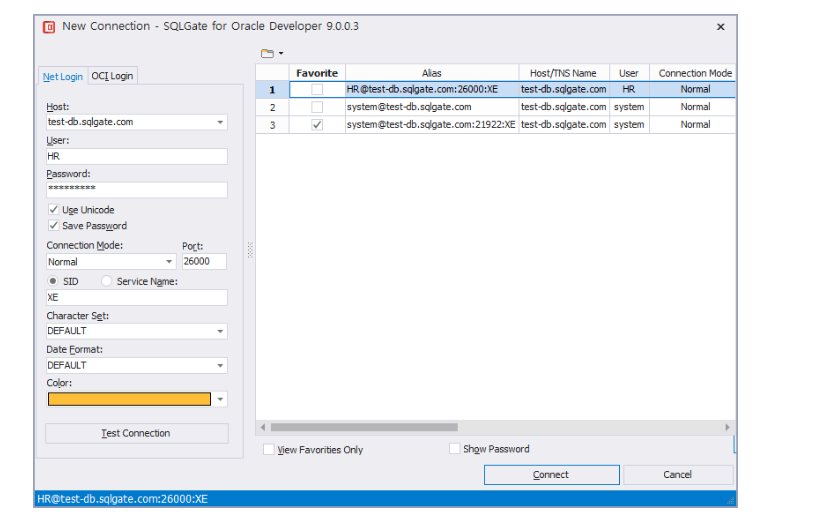
SQLGate is a versatile SQL editor and database management tool that’s designed to simplify the complexities of working with various databases. No matter what role you play, SQLGate provides you with an intuitive environment for writing queries, managing data, and optimizing performance.
Its intuitive interface and feature-rich toolkit make it a preferred choice for individuals and teams working with different database systems.
About Product:
- Founding: Developed by CHEQUER
- Employees: Specific number not available..
Key Features:
Multi-Database Support
Effortlessly manage diverse databases using a unified interface, allowing seamless connections and streamlined data handling across various database systems.
Advanced Query Editor
Benefit from advanced features like syntax highlighting, autocompletion, and real-time result previews to streamline the process of crafting and executing queries.

Visual Query Builder
Construct intricate queries through an intuitive graphical interface, eliminating the need for manual coding and enabling users to create complex queries with ease.
Data Comparison and Synchronization
Identify disparities between databases and effortlessly synchronize data, ensuring data consistency and accuracy across different database instances.
Database Optimization
Enhance database performance by utilizing indexing and query analysis tools to identify bottlenecks and optimize queries, leading to improved system responsiveness.
Data Import and Export
Simplify data migration between diverse database systems with user-friendly wizards, facilitating the movement of data without complexities.

Schema Management
Efficiently design, modify, and oversee database schemas, streamlining the process of structuring and maintaining databases.
Collaboration Features
Facilitate teamwork by sharing queries, reports, and analysis outcomes within your team, enabling seamless collaboration and knowledge exchange.
Pros of Using SQLGate:
- Comprehensive Database Support
- Intuitive Interface for All User Levels
- Visual Query Building Enhances Productivity
- Efficient Data Comparison and Synchronization
- Performance Optimization Tools
Cons of Using SQLGate:
- Learning Curve for Advanced Features
- Limited Advanced Data Analysis Capabilities
- Some Features Might Require Familiarity with Specific Databases
Pricing
- Free Version
- Enterprise: $500
- Indie Developer: $300
Customer Ratings:
- G2: 4.2 based on 12 reviews
Our Review of SQLGate:
SQLGate stands out as an adaptable SQL editor and database management tool, catering to users dealing with diverse databases. Its ability to seamlessly integrate with multiple database systems simplifies the workflow, saving time and effort.
The advanced query editor, coupled with the visual query builder, makes it a breeze to construct even intricate queries.
While some of its more complex features might require a learning curve, the tool’s overall intuitive design accommodates users of varying skill levels. The data comparison, synchronization, and optimization functionalities further enhance its utility.
SQLGate’s multi-database support, collaborative features, and positive user ratings solidify its place in the realm of database management solutions.
4. DbVisualizer

DbVisualizer is a versatile and user-friendly SQL editor and database management tool that caters to a wide range of database systems. Data analysts, developers, and database administrators use it to optimize performance, manage databases, and write queries.
With its intuitive interface and comprehensive feature set, DbVisualizer simplifies complex database tasks and facilitates collaboration within development teams.
About DbVisualizer:
- Founding: DbVis Software by Roger Bjärevall
- Employees: Specific number not available.
Key Features:
Universal Database Tool
Effortlessly work with diverse database systems using a unified interface, enabling seamless connections and interactions across different databases.
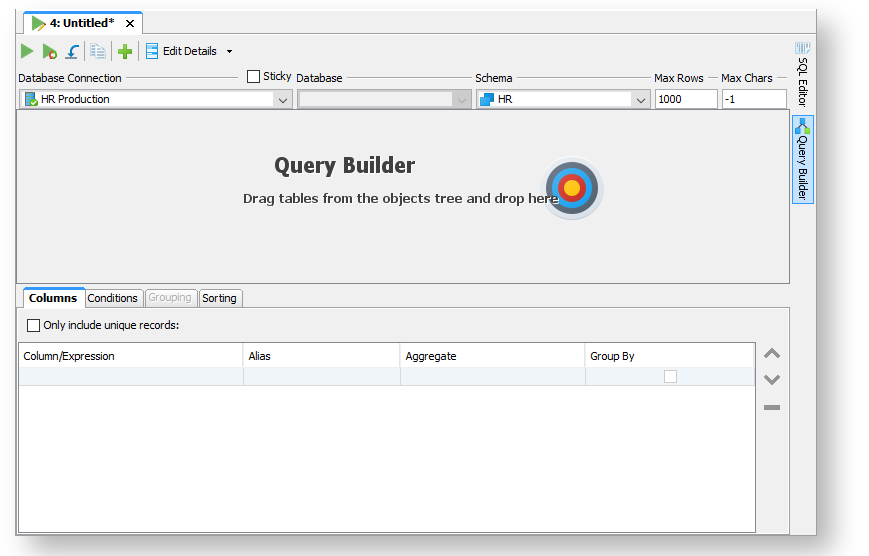
SQL Query Builder
Simplify query creation with a visual interface, catering to users of varying SQL expertise, and allowing construction of intricate queries without the need for advanced coding skills.

Data Visualization
Transform data into insightful visual representations like charts and graphs, empowering effective data analysis and supporting compelling reporting endeavors.

Database Object Management
Navigate and manage various database objects—tables, views, indexes, and more—with ease, enhancing the control and oversight of database structures.
Data Editing
Efficiently manipulate data by directly editing the result set or grid view, streamlining the process of data modification and enhancing data management workflows.
Schema Compare and Sync
Identify disparities in database schemas and effortlessly synchronize changes, ensuring consistency across different database instances and structures.
SQL History and Favorites
Maintain a record of executed queries for reference, and save frequently used queries as favorites, streamlining the query development process.
Collaboration and Sharing
Promote teamwork by sharing queries, results, and analyses with team members, fostering collaborative efforts and efficient knowledge exchange within the team.
Pros of Using DbVisualizer:
- Wide Range of Supported Databases
- Visual Query Building Enhances Efficiency
- Interactive Data Visualization Tools
- Efficient Database Object Management
- Seamless Collaboration Features
Cons of Using DbVisualizer:
- Learning Curve for Some Advanced Features
- Advanced Data Analysis Might Require External Tools
- Interface Could be Overwhelming for Beginners
Pricing
- Free
- Pro (Full Set of Features + 60-Day Support).The first year is $197 per user, exclusive of taxes. $69 per year from the second year onwards, excluding taxes. Vat
- Pro (Full Set of Features + Exclusive Support) $229 PER USER FIRST YEAR EXCL. VAT$99 SECOND YEAR ONWARDS EXCL. VAT
Customer Ratings:
- G2: 4.6 based on 182 reviews
Our Review of DbVisualizer:
DbVisualizer shines as a comprehensive SQL editor and database management tool, catering to professionals working across various database systems. Its ability to seamlessly integrate with multiple databases simplifies cross-system database tasks and boosts productivity.
The visual query builder is a standout feature, enabling users to construct intricate queries without extensive SQL knowledge. The data visualization tools add another layer of utility by aiding data analysis and presentation.
While beginners might find the interface initially overwhelming, the tool’s extensive feature set justifies the learning curve. DbVisualizer promotes collaboration among users and simplifies SQL-related tasks thanks to its collaborative features.
5. ADMINER
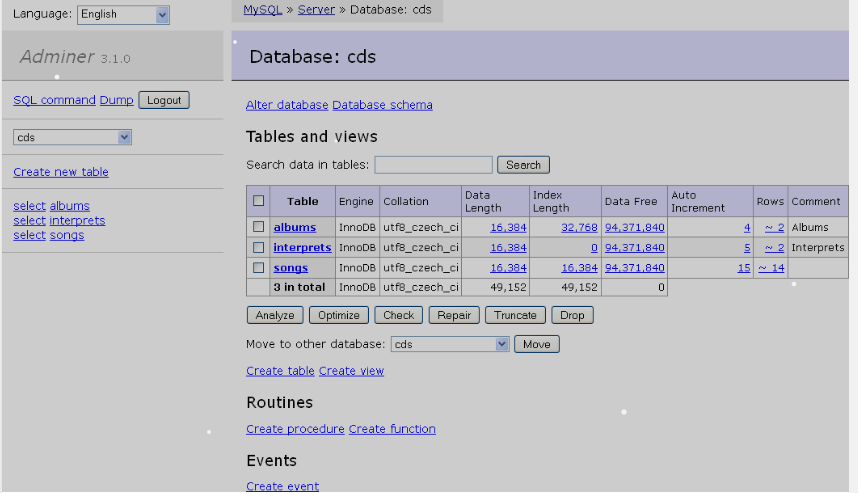
Adminer is a lightweight yet powerful database management tool designed for simplifying database administration tasks. The user-friendly interface of Adminer makes it ideal for developers, database administrators, and even novice users.
Its simplicity, speed, and support for multiple database systems make it a popular choice for those seeking an uncomplicated yet effective solution.
About ADMINER:
- Founding: Jakub Vrána
- Employees: Small team (exact number not specified).
Key Features:
Single-File Installation
Deploying Adminer is made incredibly simple with a one-file installation setup, minimizing complexity and making initial setup and ongoing maintenance hassle-free.

Multi-Database Support
Effortlessly handle various database systems through a unified interface, enabling smooth connections and efficient management across different databases.
Efficient Querying
Craft and execute SQL queries with ease, aided by syntax highlighting and real-time result previews, enhancing the query development process.

Table Management
Create, modify, and delete tables and their associated data using intuitive interfaces, providing convenient control over database structures.
Import and Export
Streamline data movement between databases with support for formats like CSV and SQL, facilitating easy data import and export tasks.
User Management
Manage database users, their privileges, and permissions seamlessly, simplifying the process of controlling database access and security.
Visual Query Builder
Construct queries visually using the query builder tool, catering to users with varying SQL expertise and enabling efficient query creation.

Database Version Control
Track and manage changes to database schemas over time, aiding in maintaining a history of schema modifications and ensuring effective version control.
Pros of Using ADMINER:
- Lightweight and Quick Installation
- Cross-Database Compatibility
- User-Friendly Interface for All Skill Levels
- Efficient Query Building and Execution
- No Need for Extensive Technical Knowledge
Cons of Using ADMINER:
- Limited Advanced Features Compared to Comprehensive Suites
- Might Require Additional Tools for Advanced Data Analysis
- Less Suitable for Extremely Large or Complex Databases
Pricing
- It’s a free tool
Customer Ratings:
- G2: 4.6 based on 17 reviews
Our Review of ADMINER:
Adminer shines as a nimble and efficient database management tool, offering a hassle-free experience for those working with various database systems. It’s single-file installation and lightweight design ensure quick setup without compromising functionality.
With its simplicity and multi-database support, as well as the visual query builder, it is useful for a wide range of users. For smaller projects and users seeking an uncomplicated solution, Adminer’s simplicity and usability make it an invaluable tool.
Its positive user ratings and practicality reinforce its role as a reliable choice in the realm of database management.
Frequently Asked Questions – FAQs
1. Can SQL editor be used by non-technical users?
Yes, many editors for SQL offer user-friendly interfaces and visual query builders, making them accessible to individuals with limited technical expertise.
2. Do SQL editors support multiple database systems?
Yes, various editors provide support for a wide range of database systems, allowing users to work with different databases from a single interface.
3. Are editors for SQl suitable for database performance optimization?
Absolutely, they often include tools for analyzing query execution plans, identifying bottlenecks, and optimizing queries to enhance database performance.
Wrapping Up
SQL editors serve as the toolkit’s backbone, enabling efficient interaction with databases, meticulous data testing, and insightful performance optimization. They simplify the complexities of SQL querying, making it accessible even to those without extensive technical backgrounds.
These tools play an essential role in modern software development and testing, whether they’re crafting queries or managing database objects. When it comes to harnessing the true potential of data-driven applications, they emerge as the go-to solution.
So, whether you’re a seasoned developer or a curious newcomer, consider integrating SQL editor into your toolkit for a smoother, more productive journey.
- 5 Best DevOps Platform and Their Detailed Guide For 2024 - December 26, 2025
- Top 10 Cross Browser Testing Tools: The Best Choices for 2024 - October 28, 2025
- 5 Best API Testing Tools: Your Ultimate Guide for 2024 - October 26, 2025



